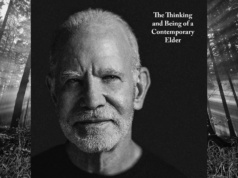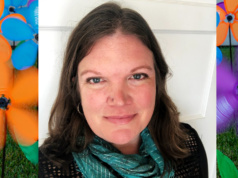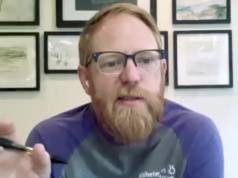Transcript
The following Answers for Elders podcast features author, innovator, Alzheimer’s and dementia family coach Faith Marshall. … And welcome everyone back to part two of our hour with the wonderful Faith Marshall, and we are here talking about family dynamics. How do you be the most supportive and you know, work together well in the care of a loved one, and this is really a much more complex situation than what we realize and faith if we’re really glad that you’re back and we talked a little bit about you know what goes on in families and how they process things and boy. You know when i was taking care of my mom, I could have used you twenty times over, because my family did not do well so anyway. So fill me and obviously we’re going to talk this segment a little bit about how you put together- and you had mentioned it- a term called who’s on first, and i want to come back to that because we didn’t really spend much time. What do you mean by that? Well, i think a family unit needs to kind of see where everybody falls in. It could even be the spouse of like if my dad was still alive when mom was diagnosed. He was kind of on on point and we had to support him right. So it’s who is the one that is going to be with the love one most often be it day today, assuming that they’re caring, they start out the journey carrying at home who’s who’s, the one who is face to face with the loved one, and i call them you know who’s on first m and because they are the one face to face the sibling who just calls on the lunch hour and talks to mom and has a good conversation which is possible in a ten minute phone call for them to kind of fake it. They tend to start to doubt the one that’s on first well, we need to just start out this whole team family so that they understand that you, you need to honor the person who’s, dedicating their time and taking care of mom, and you need to respect their opinion and they shouldn’t have to give you a count play by play of every reason and everything that mom said that that confirms the diagnosis that they have right, but many times it’s our own denial and we tend to challenge our own, siblings and and try to get through our own fear by doubting our sibling yeah and an noses. I think that if we already have issues with siblings, which is very common in families, these kind of issues sometimes can be magnified and you know, there’s a lot of dynamics and triangulation and passive aggressive type scenarios that happen within families and certainly that’s really difficult to put those aside without somebody to kind of say you know: here’s the boundaries, here’s the rule right, you know you know, and what i really like about you using this is a is a metaphor because it is like you you’re, not in the family, dynamic y r. Your job is to get out of it and to perform. You know a function or you know be a team member right being that team member is really key and giving helping families be aware to put the other stuff aside, and that necessarily isn’t the easiest thing to do. Well, i it’s like co workers in a way someone gets sick who’s going to fill in and it’s it’s. It doesn’t always work that smoothly, but it’s almost like you need an agreement, whether it has to be on paper or just a handshake, but an agreement as to who’s going to step in, if big sister, you know, has an emergency with her kids or whatever might happen. You have to have the plan b and someone that can help, and you you also all need to agree whether the patient themselves can be left alone or not, so that everyone understands that the one who’s on first can’t just go to a doctor’s appointment themself as easily as they used to, and- and it’s really sad that usually the person who’s on first sacrifice is their own health, their their finances, and all of that like yes, like you did, is they make sacrifices that the other siblings may not be aware of either, and the big thing is to try to reduce any resentment that comes up during this, but it is very, unfortunately, it’s very common, so you’ve now been thrown into business with a siblings who you wouldn’t have gone into business with, because you all think quite differently. Well, you know it’s interesting what you’re saying this, because i can relate to a scenario my mom was from the rat pack generation. As you know, she you know had her two martinis every night. You know that was her. My mom was shard and a yeah. Well, there you go same say same thing and to the point where she got pancreatitis and older and of course it was really it will. Once that happens it doesn’t. The disease doesn’t go away, but the thing was i that i was you know, buying her vodka because at what she wanted, you know, and so this was the dynamic in the family. I was a primary caregiver right and i didn’t want her to live to die a painful death because that’s a very, very, very painful to death. Yes, that way, and so i set boundaries. I said you know what i’m not going to buy you any more vodka, and i had my sibling that said i’ll, let her drink. You know- and it wasn’t think i am very grateful for my cousin who was visiting at the time- and she did say you know what does it matter, what you think suzanne’s the one that is taken care of mom exactly. I therefore guess what we’re going to do and and we need to support her, and so that means nobody in the family. We are not going to drink in front of you. We’re not going to buy you alcohol, we’re not going to do this. If i see any alcohol in your prevent presence, i’m going to pour it down the sink, and i just told her all the things i’m going to do. I didn’t tell her that she had to stop drinking. It was like an intervention, but i basically told her that i want her to live and and i’m not going to participate in this again yeah. It was interesting because my mom went okay and she stopped drinking, which was amazing, but my sister in law, who felt differently than the sad part, was because this is family dynamics. She stopped visiting my mother m because they used to sit drink together, see so that was an interesting dynamic and certainly when i sit back and i look at how that works within families, it’s it’s it’s hard, yeah, it’s hard for everybody to get on the same page, but you’re right in the fact that my family ultimately had to do what i said was going to have yeah yeah you bring that up. It reminds me of a client that said that they were watering down mom’s martinis and then mom was just like who’s making these drinks. This is awful. No, i know dimension had set in it. She know this is what are you doing to my martini? That’s i, my mom would say i have a margerita and then i’d go to the server. Luckily, my mom was hard of hearing and i’d go firkin. Please and they’d laugh ye. Well, you do the point. Is you do what you have to do to manage a one’s care and we don’t always all agree on it, but you do what you think is right and exactly, and it can be any number of those things that you think is right and the and the siblings and the family need to honor your decision, because the one that deals with the outcome, alcohol can definitely create more havoc when sundowners hits in the early evove. There’s all kinds of aspects to this, so so tell me a little bit. What are the first steps? You know once you get a family together and you realize who’s on first and you’ve got people in a room. What’s the first steps to re, creating kind of that dialogue? Well, the first thing that’s important is that they trust me and so getting to know. Each other is really the first stop so learning my history and what would got me to be quote, unquote, expert or considered an expert and developing those individual relationships with each family member, because each of us are unique because at some point in this journey i become the mediator and i may be doing coaching with a family member on why this might be a better approach than what just happened and let’s role play this and see how this can be handled better, so nobody’s throwing anything or whatever might have just happened. So that’s the first thing is really the acquaintance and getting to know families and then there’s always a key person like i mentioned that we’re trying to support and that can be the patient spouse. It can be a daughter, a son, it can be a granddaughter, it can be a niece. I mean i’ve seen a neighbor in the all yeah yeah yeah. So it’s whoever has the time andd the compassion to be able to step in and do this and then you know, there’s a point in time where care at home isn’t always an option. If there’s a lot of friction so then outside you know, cars is considered or hiring someone to come in. So do you do like touch bases with families to like, for example, as things progressed, maybe there’s challenges with. What’s what do we do next kind of thing? Are you always yeah? It’s it’s like presenting a road map. What do you need now and what do you need next? If they see the whole ten year journey that that can be really overwhelming? You know it’s going to last a long time, but just what do i need to worry about next and then keeping track yeah they’ll always be able to reach out to me schedule, appointments, quick text, messages or communication on going communication, however, that, however, it works and you do to work with families, you don’t you can do that via zoom. So wherever you are in the united states, if you have a family, you know if your families are stretched out across the united states, there’s still things that people can be involved in if you have siblings elsewhere and if you’re involved. So that’s, i think, one of the great things about how you work with family’s faith. Is you really can bring everybody together and through the miracles of technology yeah and the one thing that covin taught us was how to do that, but many times family members are not all residing in the same city as the patient, either so yeah, it’s essential to be able to communicate and right and keep things rolling so right. Well, we’re very excited again to keep exploring this topic so as as you’re listening to this podcast, everyone think about your own family and even if you’re loved one, your senior love, one may not have dimension, may not have Alzheimer’s, but do you know who’s going to be on first when that time comes who’s going to be that unit, and maybe some of these dialogues can happen early before things happen, and those are some things that we’re going to keep exploring through this hour and part three is coming up right after this. Thank you so much.












